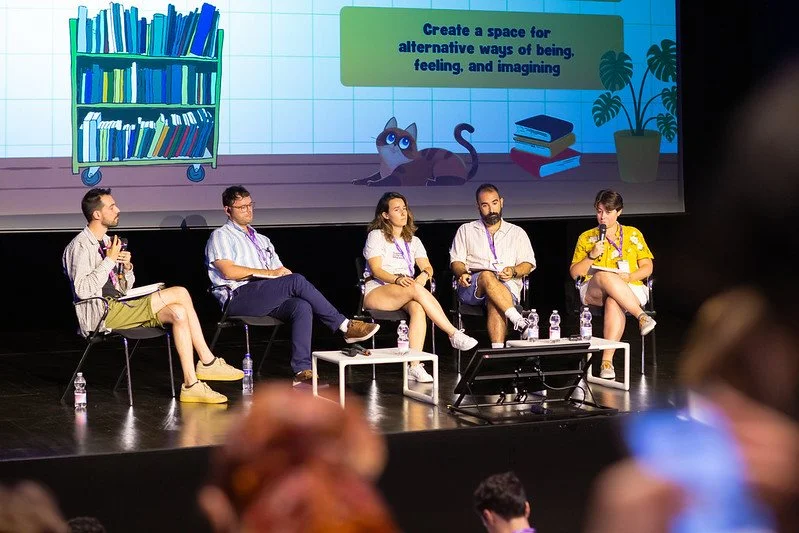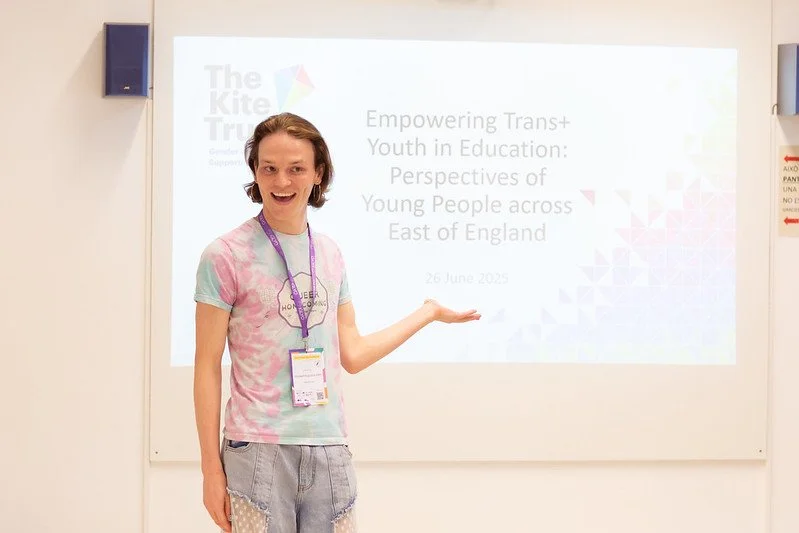Inclusive Education Is Non-Negotiable
Insights from IGLYO 2025
Ruthless International attended the IGLYO Proud Pupils LGBTQI Inclusive Education Conference in Barcelona with a clear objective: to assess current best practices in inclusive education, understand the evolving challenges LGBTQI students face globally, and identify opportunities to strengthen our own interventions in this space.
Across three days, the conference convened over 200 stakeholders from across Europe and beyond — including educators, civil society leaders, researchers, policymakers, and intergovernmental representatives — to address the structural barriers LGBTQI children and young people face in education systems.
We left with critical insights, renewed urgency, and a strengthened commitment to pushing this work forward at both systemic and grassroots levels.
The Global State of LGBTQI Education: Data, Disparities, and Implications
A core session presented by Paul Jansen of Outright International offered a comprehensive global overview of LGBTQI students’ experiences in primary and secondary education. The data is conclusive and alarming: bullying, isolation, harassment, and systemic exclusion remain routine, often leading to poor academic outcomes, absenteeism, and school drop-out. The link between discriminatory environments and negative health, safety, and educational indicators is well-documented — yet political inaction persists.
This presentation raised a key question for our team: Are inclusive education strategies being implemented at the scale and depth required to meet the urgency of the moment? For Ruthless International, the answer is no — and this gap is a strategic failure, not a technical one.
We must recognise that inclusive education is not ancillary to human rights — it is central to them. The refusal to address discrimination in schools is a policy choice with generational consequences. Any government, institution, or civil society organisation that claims to support youth equity must be willing to confront this reality with clarity and action.
Localised Action Under Constraint: Lessons from Northern Cyprus
A separate session on skills-building for teaching staff highlighted one of the strongest case studies in local resilience: Yasemin Taneri of the Queer Cyprus Association shared her experience designing and implementing LGBTQI-inclusive training in a politically sensitive and resource-limited environment.
What stood out was not only the effectiveness of the model — but the strategy behind it. Yasemin successfully engaged teacher unions, established trusted relationships with educators, and ensured content was contextually relevant. Notably, after the programme formally concluded, teachers continued to request support and materials. That sustained demand indicates the model’s practical value and cultural resonance.
For Ruthless International, this reinforces a key operational principle: grassroots infrastructure is essential to policy success. Scalable solutions cannot be imposed from the outside — they must be built with those embedded in the system. Yasemin’s work is a model of strategic intervention under constraint, and the kind of leadership we must support and replicate.
Structural Commitment: Why Scotland Matters
Darek M. Ciszek presented a detailed case study on Scotland’s national LGBTQI-inclusive curriculum, now fully embedded in state education policy. Unlike many nations where LGBTQI inclusion remains discretionary or contested, Scotland has established it as a mandatory component of schooling — implemented with teacher training, curricular development, and legal backing.
This session was particularly instructive because it demonstrated what a coordinated, top-down commitment to inclusion can look like. Scotland’s framework is not dependent on individual teacher interest or NGO pressure. It is systemic, funded, and embedded.
The outcomes, as Darek’s data showed, are significant: increased social-emotional development among students, greater cohesion within classrooms, and measurable improvements in student well-being and sense of belonging. These are not ideological claims — they are educational outcomes.
Scotland’s model is not perfect, but it is proof of concept. At a time when many countries are retreating from inclusive policies under political pressure, Scotland sets a clear precedent: inclusion is not only politically feasible — it is socially and pedagogically effective.
Inclusion Without Diversity Is Incomplete — And Often Recolonising
It is essential to underscore that inclusive education cannot exist without genuine diversity, not only in content but also in authorship, leadership, and voice. Too often, inclusion is interpreted through a narrow, Western-centric lens that replicates dominant cultural assumptions while erasing the lived experiences of LGBTQI people from the Global South, Indigenous communities, migrants, and racialised groups. An inclusive curriculum that lacks diverse epistemologies and histories is not inclusion — it is assimilation.
As conversations around LGBTQI rights in education advance globally, they must also reckon with the legacies of colonialism and ongoing power imbalances. This means creating space for decolonial pedagogies, centring local and Indigenous knowledges, and confronting how colonial structures have shaped educational hierarchies, language, and legitimacy. For Ruthless International, this is not an optional layer — it is fundamental. A truly inclusive education system must interrogate who is allowed to speak, whose histories are told, and whose futures are imagined.
Key Imperatives for Inclusive Education Reform
Based on the insights gathered at IGLYO 2025, Ruthless International identifies the following imperatives for advancing LGBTQI-inclusive education within a rights-based and globally responsive framework:
Institutionalise Inclusion as Core Policy, Not Peripheral Practice
LGBTQI inclusion must be embedded across national education systems — through binding curriculum mandates, pre-service and in-service teacher training, accountability frameworks, and legal protections. Pilot projects and symbolic gestures are insufficient. Structural change is required.Build Policy on Evidence, Not Assumption
Policymaking must be informed by robust, disaggregated data that reflects the realities of LGBTQI students in diverse contexts. Ongoing research — such as that led by Outright International — must inform legislation, funding decisions, and international education targets.Resource Local Expertise and Community Leadership
Local actors working within constrained or hostile environments are designing effective, culturally attuned solutions. These initiatives — like the work of Queer Cyprus Association — must be recognised as strategic partners, not just beneficiaries. Their leadership should shape both funding and policy direction.Leverage International Models Strategically
The Scottish national curriculum demonstrates that full integration of LGBTQI content is politically and operationally viable. It should serve as a model for international replication, adapted to local legal and cultural contexts. International cooperation must move beyond rhetoric toward measurable implementation.Address Power, Representation, and Colonial Legacies
Inclusion must go beyond content to challenge the underlying structures of who controls knowledge, which narratives are legitimised, and whose histories are taught. This includes confronting colonial legacies in education and embedding a framework of diversity that reflects global realities, not Western norms.
Moving Forward
At Ruthless International, we are integrating these insights into our education equity and human rights portfolio. We will continue to:
Support research, advocacy, and coalition-building that advance comprehensive inclusive education globally;
Strengthen relationships with local actors who are leading this work from the ground up;
Push for international standards and funding mechanisms that reflect the urgency of the moment.
We extend our thanks to IGLYO, the Council of Europe, FELGTBI+, Universitat Autònoma de Barcelona, and all contributing partners for convening this important space.
Inclusive education is not a cultural debate. It is a human rights imperative.
We remain committed to ensuring every child and young person — regardless of sexual orientation, gender identity, gender expression, or sex characteristics — has access to safe, affirming, and high-quality education.
Images by © Alisa Sibirskaya



